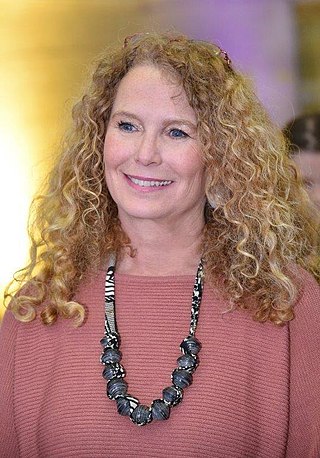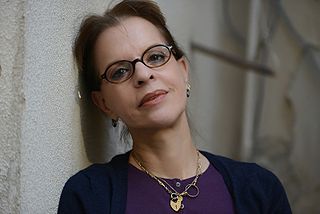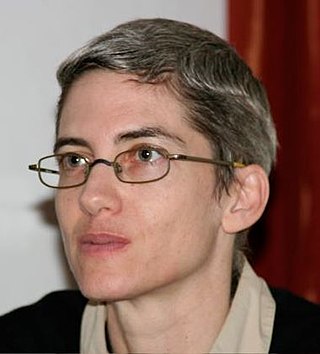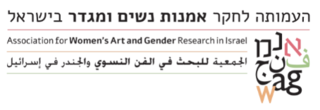The National Council of Jewish Women(NCJW) is a 501(c)(3) tax-exempt organization. Founded in 1893, NCJW is self-described as the oldest Jewish women's grassroots organization in the United States, currently comprising over 180,000 members. As of 2021, there are 60 sections in 30 states. Specifically, NCJW's policies address expanding abortion access, securing federal judicial appointments, promoting voting integrity, and mobilizing Israeli feminist movements. These objectives are achieved through lobbying, research, education, and community engagement. NCJW's headquarters are located in Washington, D.C., and the organization maintains offices in numerous other cities in the U.S. as well as in Israel.

The Van Leer Jerusalem Institute (VLJI) is a center for the interdisciplinary study and discussion of issues related to philosophy, society, culture, and education. The Institute was established in to create a body of knowledge and discourseto give expression to the wide range of disciplines and opinions in Israel. The contribution of a core of renowned scholars facilitates the implementation of reforms and new approaches in various social spheres.
Michal Heiman is a Tel Aviv-Yafo based artist, curator, theoretician and activist. She is the founder of the Photographer Unknown Archive (1984) and creator of the Michal Heiman Tests No. 1-4 (M.H.T). Her work bears on issues of history, human and women's rights, trauma, and memory, as well as an examination of the photographic medium, using reenactment, installation, archival materials, photographs, film, and lecture-performances.
Bracha Turner was a Naive Artist born in Jerusalem, eventually moving to Forest Hills, New York. Turner began painting at the age of 58 and has had 56 solo exhibitions, including a solo exhibit in 1998 at The Bible Museum in Tel Aviv. Her works have appeared at numerous juried exhibitions, including the J. F. Kennedy Art Gallery in Montreal; New England Fine Arts Institute, Boston, MA; West Side Arts Coalition, NY; International Women in the Arts Conference, Beijing, China; Second International Women Artists’ Festival at the Ft. Mason Center in San Francisco, CA; La Galerie Internationale, Palo Alto, CA; Galerie Everats, Paris, France; World Contemporary Art ’98 Exhibition, Los Angeles, CA; Audubon Artists at the Salmagundi Club, New York City.

Galia Sabar is the president of Ruppin Academic Center, one of Israel leading public colleges. Prior, she was a professor of African Studies at Tel Aviv University and the Chair of African Studies at the Department of Middle Eastern and African History at Tel Aviv University, where she also served as the coordinator of African Studies at the S. Daniel Abraham Center for International and Regional Studies. Sabar has published seven books and dozens of articles in professional journals. In addition to her academic research, Sabar has been a leading social activist in Israel mainly in relation to Ethiopian immigrants as well as in partnership with various NGOs assisting African labor migrants and asylum seekers. In May 2009, in recognition of her work combining academic rigor with social activism, Sabar received the Unsung Heroes of Compassion Award, sponsored by the international organization Wisdom in Action and delivered by the 14th Dalai Lama.
Tami Katz-Freiman, former Chief Curator of the Haifa Museum of Art, is an art historian, curator and critic, based in Miami, Florida, where she works as an independent curator of contemporary art.

Hagit Shahal is an Israeli painter.
Tal Shochat is an Israeli photographer.
Diti Almog is an Israeli artist. She currently lives and works in New York City, New York, United States of America. Almog's most notable work is her acrylic paintings on aircraft plywood which focus on themes of interior and exterior spaces.

Fatma Shanan is a Druze painter from Israel.
Tamar Raban is an Israeli artist, who also creates and works in performance field. Founder and Artistic Director of Performance Stage, Ensemble 209 and the ZAZ Festival. She is one of the most prominent performance artists in Israel and her performances have been exhibited in Israel and abroad in festivals, theaters, galleries, museums, shelter 209 and in performance stage. Co-founder of the Dan Zackheim 209 Shelter for the Advancement of Interdisciplinary Art in Israel Founder and Artistic Director of the Performance and Ensemble Stage 209.
Evangelia Tastsoglou, also known as Evie Tastsoglou, is a Greek-Canadian sociologist and lawyer. She is Professor of Sociology and International Development Studies at Saint Mary's University (Halifax) in Canada. She is known for her research relating to issues of gender and international migration, migration and globalization, immigrant and minority women and citizenship, and sexual and gender-based violence during forced migration.

Esther Eillam was a central figure in Israeli feminism from its inception. Eillam's activism and her writings on feminism and social justice have garnered her awards and recognition, including an honorary doctorate from the Hebrew University of Jerusalem.
Mizrahi feminism is a movement within Israeli feminism, which seeks to extricate Mizrahi women from the binary categories of Mizrahi-Ashkenazi and men-women. Mizrahi feminism is inspired by both Black feminism and Intersectional feminism, and seeks to bring about the liberation of women and social equality through recognition of the particular place Mizrahi women hold on the social map, and all the ways it affects Mizrahi women.

Shula Kehset is an Israeli social and political activist and entrepreneur, Mizrahi feminist, artist, curator, writer, educator, and publisher; one of the founders and the executive director of the MIzrahi feminism movement, "Ahoti – for Women in Israel".

Amal Ziv is an Israeli academic and researcher. Their research areas are pornography and sexual representations, queer culture, queer activism, and queer kinship. Because of their activism and research, Ziv is considered a prominent member of the LGBTQ and feminist communities in Israel.

Iris Stern Levi is an Israeli social activist focused on issues of women's and human rights. She is co-founder of the non-profit organizations Her Academy (2016) and Turning the Tables (2011), both of which work to provide vocational training for women who are survivors of prostitution and violence. Stern Levi is also on the board of Coalition of Women for Peace, co-director of the Testimony Tribunal of Women Victims of Sexual Assault, and was the volunteer coordinator for the Tel Aviv Sexual Assault Crisis Center for 16 years. She is the recipient of the 2018 Sussman-Joint Award.

The Association for Women's Art and Gender Research in Israel is a non-profit organization that works to research women and gender in Israeli art, and to provide support for women artists, curators, researchers and cultural organizers.

Käthe Ephraim Marcus was a German-Israeli painter and sculptor.
Mikhal Dekel is an Israeli-born author and professor of literature based in the United States, specializing in the theory of migrations, historical memoir, representations of trauma, and the overlap between law and literature. She teaches English and Comparative Literature at City College New York (CCNY) and the City University of New York (CUNY) Graduate Center, and directs CCNY’s Rifkind Center for the Humanities and Arts










